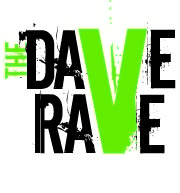
Each and every day as we enter our lives, whether at work or at home, even at play, we are forced to use words, to form sentences. It almost seems second nature. But let’s face it. Sometimes we’ve said things that we wish we hadn’t.
As a matter of fact, there are some habit-forming words we use to form sentences that always keep us limited by their affect on others. Here are five I’m trying my best to avoid.
- I’m trying not to start a sentence with the word, “why.” That usually is looking for someone to blame. “Why isn’t this done? Why weren’t they here? Why didn’t I know?” It has an air of accusation and almost always puts the other person on the defensive.
- I’m trying not to start a sentence using the word “who.” Again, this is looking for someone to blame, to shift responsibility. “Who failed? Who can we hold accountable? Whose responsibility is it?” All things that no one wants to hear, especially when they are the object of the “who.”
- I’m trying not to start sentences using the words “I disagree.” You may indeed disagree, but this is an aggressive statement and it almost always puts the listener on the defensive. And all of a sudden it becomes less about the content over which you disagree, and more about the way you’ve disagreed or disrespected the person making the statement.
- I’m trying not to start sentences using the words, “That’s stupid.” I know this sounds almost self-evident, but how many times have we allowed a conversation to become emotional and then become personal? And as a defense or even in an attack mode we’ve blurted out, “That’s stupid.” Well, if I said it, then it makes me stupid. And all of a sudden we’re attacking one another. And people who attack one another never get to “win-win-or-no-deal-always.”
- I’m trying not to start sentences using the words, “I’d never.” Have you ever said, “I’d never do that. I’d never say that. I’d never pay them that. I’d never go there. I’d never get fired.” only to end up having to eat those words?
Maybe you have more words that just get in the way of human relationships and learning how to work together in healthy environments. Send me some. We’ll make a list and try to ostracize those out of our language.
